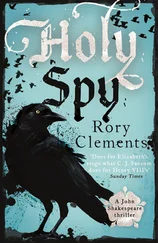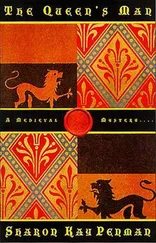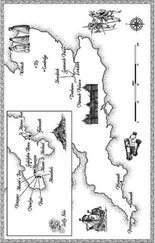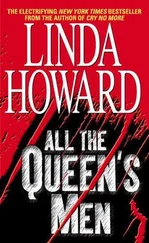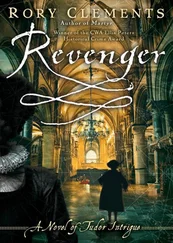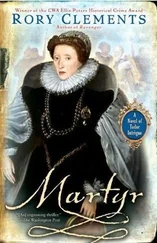Rory Clements - The Queen's man
Здесь есть возможность читать онлайн «Rory Clements - The Queen's man» весь текст электронной книги совершенно бесплатно (целиком полную версию без сокращений). В некоторых случаях можно слушать аудио, скачать через торрент в формате fb2 и присутствует краткое содержание. Жанр: Исторический детектив, на английском языке. Описание произведения, (предисловие) а так же отзывы посетителей доступны на портале библиотеки ЛибКат.
- Название:The Queen's man
- Автор:
- Жанр:
- Год:неизвестен
- ISBN:нет данных
- Рейтинг книги:4 / 5. Голосов: 1
-
Избранное:Добавить в избранное
- Отзывы:
-
Ваша оценка:
- 80
- 1
- 2
- 3
- 4
- 5
The Queen's man: краткое содержание, описание и аннотация
Предлагаем к чтению аннотацию, описание, краткое содержание или предисловие (зависит от того, что написал сам автор книги «The Queen's man»). Если вы не нашли необходимую информацию о книге — напишите в комментариях, мы постараемся отыскать её.
The Queen's man — читать онлайн бесплатно полную книгу (весь текст) целиком
Ниже представлен текст книги, разбитый по страницам. Система сохранения места последней прочитанной страницы, позволяет с удобством читать онлайн бесплатно книгу «The Queen's man», без необходимости каждый раз заново искать на чём Вы остановились. Поставьте закладку, и сможете в любой момент перейти на страницу, на которой закончили чтение.
Интервал:
Закладка:
He cursed silently and thrust his sword back into its scabbard. How had he let Slide go? Harry Slide: if that was his real name, then it was appropriate, for he was as slippery as an adder. And probably as venomous. Well, it was a lesson learnt: never escort a man to custody unbound.
Across the market square, he spotted Boltfoot Cooper emerging from a tavern. He hailed him and Boltfoot limped across.
‘What have you discovered, Boltfoot?’
‘I have discovered that Yorkshire ale is as good as London ale, master. Also, that there are many in these parts who believe the Scots Queen to be wronged by our own dear Majesty.’
‘And many, I suppose, who would like to see Mary hanged.’
‘No, master. The only words I heard sounded very much like treason. They spoke of Good Queen Bess as a. . no, I must not say the word of her, for fear of my own neck on the block.’
The word was bastard . They were suggesting that Great Henry’s marriage to Anne Boleyn — the ‘concubine’ as the Catholics called her — was not legitimate and therefore neither was their daughter.
It was the argument always used by those who would see her deposed in favour of the Scots Queen. Since the day Elizabeth ascended the throne, she had never been recognised by Catholics across the sea, or by many of those who clung to the old faith in England. In France, where the then fifteen-year-old Mary was newly married to the French Dauphin, Francis, it had immediately been ordered that she should henceforth be known as Queen of England, Scotland and Ireland. When she walked in company, ushers were commanded to cry out: Make way for the Queen of England . And nothing had changed. Was it any wonder that Elizabeth would not accept her cousin at court, nor grant her liberty?
‘So all men in these parts are for the Scots Queen?’
‘I could not say that, for most men did not speak of her at all, but discussed the price of beef, the harvest, and the pig-like ugliness of their wives.’
Shakespeare listened to Boltfoot’s grim testimony with resignation but no surprise. But it was still worrying that enough men felt free to voice their treasonable thoughts without fear of retribution. How could Elizabeth be safe when so many of her subjects would rejoice if she were deposed or dead? This was the war of secrets to which he was signed. Sometimes in the quiet of the night in London, it seemed the threat was all in the febrile mind of his master, Walsingham. Here, in Yorkshire, it seemed dangerously real. Yet more reason to move Mary Stuart away from this place.
Sir Bassingbourne Bole’s house stood two miles to the north of Sheffield. As Shakespeare and Boltfoot rode along the tree-lined driveway, it began to seem that something was horribly wrong. A thin black spiral of smoke drifted into the sky.
As the two riders reined in at the front of the house, all they saw was a blackened husk of what had clearly been a decent, stone-built manor, fit for a magistrate and respected member of the Yorkshire gentry. Smoke drifted lazily from the remnants of rafters, thatch and purlins. Ash fluttered all around them. The air stank.
Shakespeare nudged his horse forward and rode it around to the stables. Looking about in vain for signs of life, he slid from the animal, indicating to his assistant that he should remain mounted.
‘Load your caliver, Boltfoot.’
The yard had stabling for a dozen or more horses, but the boxes were all empty. The only sign of life was the steaming pile of horse-dung that had been shovelled high in a corner of the yard.
To the left, the broad open yard was bordered by sties and coops, all empty, as though the pigs had run and the birds flown. There was, too, a huge old barn, so large that it might have been used for the collecting of tithes in former times. Shakespeare entered through the gaping doorway. All about him there were ploughs and carts, some in good repair, others awaiting the wheelwright’s attention. At one end, a long ladder gave access to a hayloft.
‘Is anyone here?’ The words rang through the vast, high-domed space.
He was convinced he heard a sound from the loft. ‘Come down, you will be safe. On the Holy Book, I pledge it.’
He waited a moment, but there was no more noise, so he ascended the ladder. As he reached the top, there was a sudden scuttling in the hay. Shakespeare’s hand went for his dagger, but then withdrew. He could hear the whimpering of children. There was no threat here. He stood in the slanting light that came through the gaps in the roofing and looked about at the echoing gallery.
‘I am a friend. I will not harm you.’ He spoke as softly as he could. ‘Have no fear.’ He held up his hands to show that they did not hold weapons.
Slowly, a woman rose to her feet from the hay. Her eyes were wide with terror. Three, no, four children rose beside her, clutching at her skirts as though they were one entity. None of them was older than seven or eight years. He had chanced upon a terrified family — a mother and her young — hiding from some nameless dread.
The woman was shaking, eyes agog as she stared at the newcomer. One moment she was looking at his face, the next at the sword and dagger stowed in his belt. Avoiding any sudden movements, Shakespeare took out the weapons and laid them flat on the boards of the loft, hilts pointing away from him. ‘See. I mean you no injury. What has happened here, mistress?’
‘Who are you?’
‘My name is John Shakespeare. I have come to speak with Sir Bassingbourne Bole. This is his home, is it not?’
She said nothing.
‘Is he here?’
‘They took him.’
‘Who did this? Why?’
‘The pursuivants. They ransacked our home, then torched it.’
‘Are you Lady Bole?’
The woman nodded tentatively. She cut a plump, homely figure, more farmwife than lady to a knight.
‘Have you any idea why they did this?’
‘They said they were seeking books.’
‘Papist books?’
She nodded again.
‘Did they discover what they were looking for?’
‘No, but they found our guest, Father. . Mr Cuthbert Edenshaw.’
‘Hiding in a coffer among your apparel.’
‘You know of this?’
Shakespeare sighed. ‘I fear I heard it from the man who discovered him, one Topcliffe. I did not know he had taken your husband, too. Nor did I know he had destroyed your home.’
The blood seemed to drain from the woman’s face on hearing the name. ‘The white-haired one? I would walk through fire and water never to see his face again. Did he tell you that he and his men smashed the coffer to pieces with a sledgehammer, along with all the other furnishings and panelling in our home? And then piled it up and put a torch to it?’
‘No, he did not tell me that.’
‘Who exactly are you, Mr Shakespeare?’ She seemed to be regaining a little of her courage. ‘Why did you wish to talk with my husband?’
‘I am on royal business at the castle. I heard of some connection between this house and a certain member of the Scots Queen’s household. Do you know anything of this?’
‘I know nothing about anything. I know that I no longer have a home and that my husband lies in his soil in a dungeon. I know that our servants have fled and all our horses and livestock are gone. I have nothing save my children, and what is to become of them? I know that I live in an England I do not recognise from the days of my girlhood.’
‘Do you have any kin nearby — somewhere you can stay for the present?’
‘My only family is my brother, but he lives in Grantham.’
‘I could try to find you transport there.’
‘Then who would be here for Bassingbourne?’
‘What of friends nearby, would any take you in?’
Читать дальшеИнтервал:
Закладка:
Похожие книги на «The Queen's man»
Представляем Вашему вниманию похожие книги на «The Queen's man» списком для выбора. Мы отобрали схожую по названию и смыслу литературу в надежде предоставить читателям больше вариантов отыскать новые, интересные, ещё непрочитанные произведения.
Обсуждение, отзывы о книге «The Queen's man» и просто собственные мнения читателей. Оставьте ваши комментарии, напишите, что Вы думаете о произведении, его смысле или главных героях. Укажите что конкретно понравилось, а что нет, и почему Вы так считаете.

